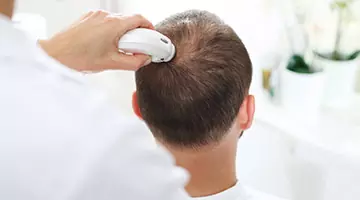Allergic Rhinitis - Triggers At Home
“My Home Is My Castle” – we all can relate with this statement. But, what if our comfy-cozy surroundings make us fall ill? Your home harbors a surprising number of sneaky allergy-causing culprits. A messy home – digs for dust mites, bugs, mold and mice – old newspapers, magazines, cans and grocery bags – allergens can be found at any of these places and make you fall ill, sneeze and scratch your throat.
A recent nationwide survey found that over half of all Indians test positive for at least some allergens, and many of these are indoor allergies such as dust, mold, and pet dander. How can you allergy-proof your home to make it a better place to live, not a place of illnesses? Well, illnesses can be treated by medication, but removing allergens from your home is a much more effective way to stop your stuffy nose, headache, watery eyes and shortness of breath. Here, in this article, we are going to tell you about some effective ways of dealing with indoor allergens and allergies. Also, you’ll get to know - how homeopathic medicines for allergic rhinitis cure such cases.
Allergy-proof your home
Vacuum Cleaner - We use a vacuum cleaner to clean our homes, but how well do we clean the machine itself? If not cleaned well, all the dust collected from the house remains back in the vacuum cleaner and it becomes an allergen breeding hotspot.
Pets - Furry animals such as cats and dogs are a great place for pollen to hide. Some people get affected by horses, cattle, rabbits and rodents too. The same goes for your fur jackets and coats. The allergic reaction isn't caused by animal fur, but flakes of dead animal skin and their urine and saliva. Hence, it is advised to keep animals out of the bedroom if you can’t find a new home for them. Bathing pets at least once a week may reduce the amount of allergens in the dander they shed.
Curtains and sofas - Dust mites and critters live on your skin and eat the dead cells. They then settle on any smooth and soft surface that your skin touches. Sofas and curtains are their ideal hangouts. Use washable curtains made of plain cotton or synthetic fabric.
Potted plants - The moist potted plants are the perfect place for molds to grow. They gradually spread to the floor and eventually to you, leading to allergies. Find a new home for potted plants or spread aquarium gravel over the dirt to help contain mold.
Windows - Close windows and rely on air conditioning during pollen season to prevent yourself from pollen allergies. Clean mold and condensation from window frames and sills. Use double-paned windows if you live in a cold climate.
Books - Your food for thought can be food for allergens too. Dust mites, mold, and booklice love settling in books. You can brain someone else’s mind by gifting all those old books from the shelf.
Beds and mattresses - We spend a minimum of 7 hours in a day sleeping. This period is more than enough to leave behind millions of dead skin cells that attract loads of dust mites and critters. Wash sheets, pillowcases and blankets at least once a week in water heated to at least 130 F (54 C). Replace wool or feathered bedding with synthetic materials.
Soft toys - Soft toys are another lovely breeding spot for allergens of all sorts. Wash them often.
Bathrooms - The watery tiles and the humidity in the bathrooms make it a perfect breeding ground for molds to grow, giving your bathroom the greenish slippery look. Install and use an exhaust fan to reduce moisture while taking baths or showers.
Kitchen - The kitchen is the ideal place for cockroaches to breed. The drip tray in your fridge and the sink are perfect for molds to thrive. Keeping the kitchen free of food crumbs will help reduce the chance you will have rodents or cockroaches.
New paint and furniture - Both these items give out volatile organic compounds into the air that are potential asthma triggers.
It may be impossible to completely allergy-proof your home, but if you follow these tips you may find yourself breathing easier. While, there are many people whose allergic symptoms gets severe and just doesn’t go with any medical prescription and precaution. If this happens to you, don’t worry. You’re not alone! Allergic Rhinitis is one of the common chronic complaints that influence health in a long period of time. Therefore, early therapeutic help is necessary to avoid health consequences.
Homeopathic medicines for allergic rhinitis are an effective medical option that offers significant relief to patients affected by the disease. It also effectively boosts patients’ immunity, which prevents them from getting succumbed to allergens. Benefits of homeopathy medicine for allergic rhinitis have been documented in a double-blind study performed at Phoenix metropolitan area.
Related: Identify the early symptoms of allergies in children
At Dr Batra’s™, thousands of patients have been successfully treated with homeopathic medicines for allergic rhinitis and have been provided significant relief from this afflicting condition.






